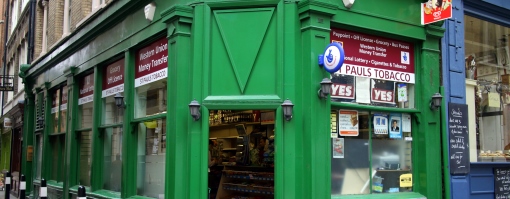Shop prices fell by 0.6 per cent last month, a slower decline than April’s decrease of 1.3 per cent.
According to research from the British Retail Consortium, this is below the 12 and six month average price declines of 1.7 per cent and 1.8 per cent respectively. This represents the slowest rate of decline since February 2020.
Non-food deflation continued to slow in May, with prices falling by 0.8 per cent compared to a decline of 1.7 per cent in April. This is above the 12- and 6-month average price declines of 3.1 per cent and 2.9 per cent, respectively.
This is the slowest rate of decline since May 2019.
Food deflation decelerated to 0.3 per cent in May from April’s deflation of 0.6 per cent. This is the second consecutive month when food prices fell. This is below the 12- and 6-month average price increases of 0.7 per cent and 0.1 per cent, respectively.
Fresh food prices fell for the sixth consecutive month in May, although deflation slowed to 1 per cent last month from 1.5 per cent in April. This is below the 12- month average price growth rate of -0.3 per cent and in line with the six-month average price growth decline of 1 per cent.
“It was another good month for consumers looking for bargains as prices fell again, albeit at a slower pace than last month,” said Helen Dickinson, chief executive, British Retail Consortium. “While clothing and footwear prices continued to fall in May, the pick-up in demand once social restrictions lifted meant this drop was smaller than in previous months. Furniture and electricals saw prices rise as retailers felt the lingering impact of global supply chain disruption from earlier this year.
Added Dickinson: “Meanwhile, supermarkets fought hard to maintain market share and please thrifty customers by keeping prices low.”
But, she said, cost pressures are bearing down and global food prices are currently at their highest in seven years. She also said that shipping costs have risen threefold since 2019, while commodity prices are climbing.
“We will likely see these costs filter through in the second half of this year, and with the additional Brexit red-tape this Autumn, retailers may be forced to pass on some of these costs onto their customers,” she warned. “Government can help to ease the burden on British consumers by finding ways to minimise the impact of new checks and documentation required from October.”
Latest News
-
Currys hires new head of customer data
-
Coca-Cola abandons Costa Coffee sale after bids fall short of £2bn target
-
Lidl appoints chief customer officer
-
Ikea pilots virtual product experience on Roblox
-
LuisaViaRoma boosts omnichannel capabilities with unified platform
-
Walmart poaches new AI shopping exec from Google
Beyond Channels: Redefining retail with Unified Commerce
This Retail Systems fireside chat with Nikki Baird, Vice President, Strategy & Product at Aptos will explore how unified commerce strategies enable retailers to tear down these barriers and unlock new levels of operational agility and customer satisfaction.
The future of self-checkout: Building a system that works for consumers and retailers
In this webinar, industry leaders discussed what the future of self-checkout looks like and how retailers can make the technology work for everyone.
© 2024 Perspective Publishing Privacy & Cookies










Recent Stories